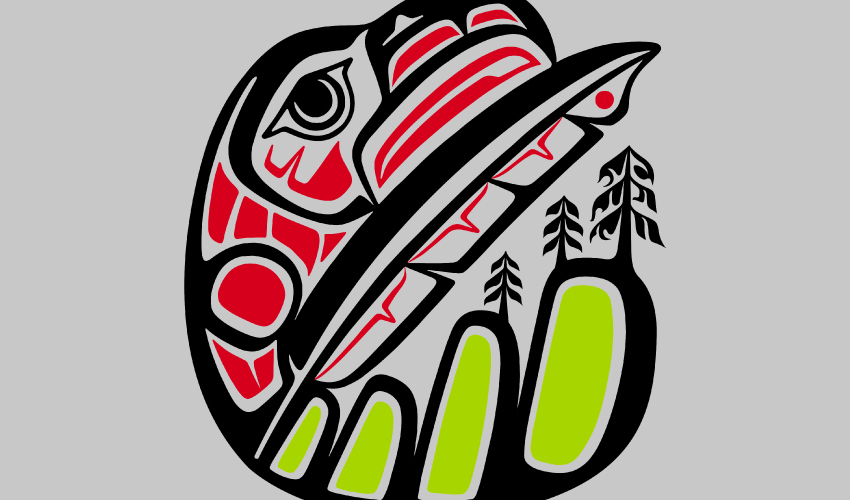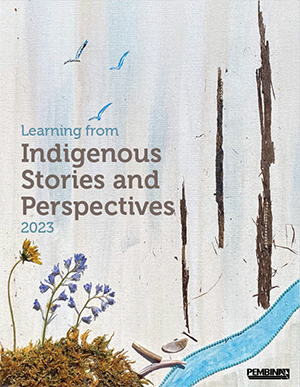
Indigenous Engagement
We recognize the profound relationships that Indigenous people have with the land on which we operate.
We understand that the success of our business is directly tied to the support of our neighbours, many of whom are Indigenous. We take the time to meet and get to know neighboring Indigenous and Tribal communities so we can learn, understand, and respond to concerns as well as provide information about our operations, projects and economic benefits associated with them. Our Indigenous & Tribal Relations Policy governs how we build mutually beneficial relationships with Indigenous communities.
At Pembina, we recognize and respect:
- That there are many distinct Indigenous communities and Tribes with unique languages, cultures, traditions, rights, priorities, and protocols.
- The important role that Indigenous and Tribal people and communities play in the evolution of our Environmental Social and Governance (ESG) standards.
- The spirit and intent of the United Nations Declaration on the Rights of Indigenous Peoples (UNDRIP), within the context of the Canadian Constitution, existing laws and jurisprudence on Indigenous and treaty rights.
- The United Nations Declaration on the Rights of Indigenous Peoples as a framework for reconciliation.
- That all Canadians, including private industry and government, must play a role in advancing the Truth and Reconciliation Commission of Canada’s (TRC) Calls to Action and, in particular, Call to Action Number 92, Business and Reconciliation.
Our Approach to Building Relationships
Building positive relationships with Indigenous communities helps us understand the importance of the area and the culture of the people who live there and provides the opportunity to collaborate on community projects relating to community development, employment and business development.
To build mutually beneficial relationships with Indigenous communities, we focus on:
- Commit to honest and ongoing two-way communications through early, meaningful and ongoing engagement and consultation;
- Build, maintain and formalize long-term relationships;
- Maximize participation and minimize potential impacts of our projects and operations;
- Support participation in engagement and consultation;
- Enhance understanding of traditional practices, Indigenous and Tribal histories and cultures among our employees and vendors; and,
- Seek opportunities to incorporate Indigenous and Tribal knowledge and ways of knowing into our project design and operational planning.
We commit to:
- Recognizing capital access and management as important mechanisms for Indigenous and Tribal people and communities to develop self-reliant revenue streams that support self-determination.
- Supporting and advocating for economic engagement, including direct employment, contracting opportunities, and training to and for employment, with Indigenous and Tribal communities.
- Engaging with Indigenous and Tribal suppliers and following a transparent process, supported by policies, standards and governance strategies.
In 2021, we announced new equity, diversity and inclusion targets. These targets support the work being done across the organization to advance ESG priorities, including to increase the representation of women and other underrepresented groups, including Indigenous peoples, at all levels of the organization.
- 45 percent overall diversity in the workforce by 2025.
- 40 percent overall diversity in executive leadership by 2025.
To learn more or apply for funding, click here.
Transformational Partnerships
We believe that environmental stewardship, Indigenous prosperity and inclusion, and mutual economic benefit are the cornerstones of future energy infrastructure development in Canada, and we are honoured to have the opportunity to work with the Haisla Nation to produce Canadian LNG.
 The Cedar LNG Project (Cedar LNG) is a proposed floating LNG facility in Kitimat, British Columbia, Canada, within the traditional territory of the Haisla Nation. The Haisla Nation and Pembina have announced a partnership in the development of the proposed Cedar LNG Project with Pembina assuming operatorship of the Project.
The Cedar LNG Project (Cedar LNG) is a proposed floating LNG facility in Kitimat, British Columbia, Canada, within the traditional territory of the Haisla Nation. The Haisla Nation and Pembina have announced a partnership in the development of the proposed Cedar LNG Project with Pembina assuming operatorship of the Project. The Cedar LNG Project will be the first Indigenous majority-owned LNG export facility in Canada and will have one of the cleanest environmental profiles in the world.
We believe that environmental stewardship, Indigenous prosperity and inclusion, and mutual economic benefit are the cornerstones of future energy infrastructure development in Canada, and we are honoured to have the opportunity to work with the Haisla Nation to produce Canadian LNG.
Learn more at www.cedarlng.com
Chinook Pathways is an Indigenous led and industry operator partnership pursuing equity ownership in the Trans Mountain Pipeline and Expansion (collectively, Trans Mountain).
Chinook Pathways was formed by Western Indigenous Pipeline Group (WIPG) with Pembina as their selected industry partner for the purpose of establishing a collaborative ownership framework for Indigenous communities in the purchase of Trans Mountain.
Working together, we believe that Trans Mountain presents an exciting opportunity to redefine how Indigenous communities and industry can work together to support economic reconciliation.
Learn more at www.chinookpathways.com.

